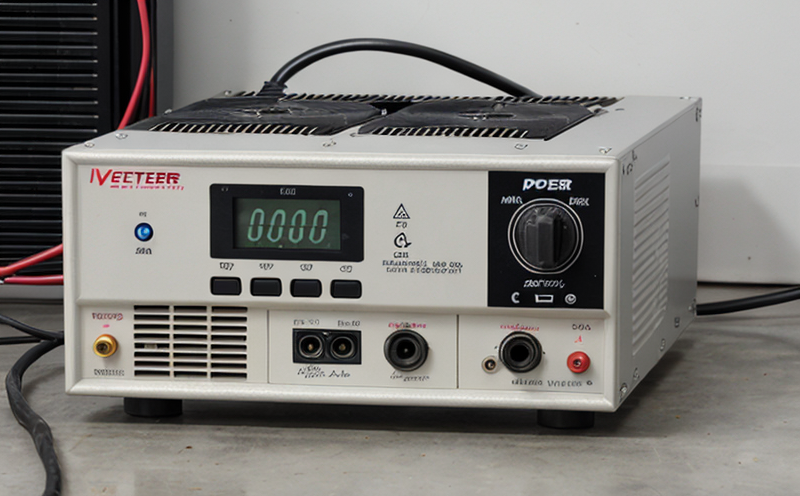IEC 61000-4-29 DC Power Port Voltage Variation Testing
The IEC 61000-4-29 standard addresses the issue of voltage variation at the power port for inverters and other power electronics. This is crucial for ensuring that devices can operate reliably under varying electrical conditions, which is particularly important in renewable energy systems where environmental factors like temperature, humidity, and altitude can significantly affect performance.
The test aims to simulate real-world operational scenarios to verify the robustness of inverters against voltage fluctuations. These variations could be due to grid instability or changes in the power supply characteristics. By adhering to this standard, manufacturers ensure that their products meet stringent quality benchmarks and are suitable for deployment in diverse environments.
At our laboratory, we utilize state-of-the-art equipment to simulate various conditions that an inverter might encounter during operation. This includes adjustable voltage sources capable of generating precise and controlled variations according to the IEC 61000-4-29 specifications. Our team of experts carefully prepares specimens by connecting them to these setups, ensuring accurate measurements and consistent results.
Our approach ensures that every test is conducted under controlled conditions replicating actual usage scenarios. This allows us to provide comprehensive reports detailing the performance of your devices under specified voltage variations. These reports are invaluable for quality managers seeking to maintain high standards within their organizations or compliance officers looking to meet regulatory requirements.
For R&D engineers, this service offers valuable insights into potential improvements needed in design and manufacturing processes. In addition, procurement teams benefit from knowing that they can source components and subsystems that have been rigorously tested according to international standards like IEC 61000-4-29.
The results of these tests are not only beneficial for compliance but also contribute towards enhancing product reliability and longevity. By identifying weak points early on through thorough testing, manufacturers can mitigate risks associated with field failures, thereby protecting their reputation and customer satisfaction.
Applied Standards
The IEC (International Electrotechnical Commission) has established several standards that govern the behavior of power electronic devices within electrical systems. One such standard is IEC 61000-4-29, which specifically addresses voltage variations at the DC power port.
Other relevant international standards include:
- IEC 61850 for intelligent electronic devices
- EN 50563 for photovoltaic inverters
- ASTM E2749-19 for solar power converters
- ISO/IEC 17025:2017 which defines the requirements for competence of testing and calibration laboratories
These standards work together to ensure that inverters and other power electronics perform reliably across a wide range of conditions. Compliance with these standards is essential not only for maintaining safety but also ensuring compatibility within larger systems.
Scope and Methodology
The scope of IEC 61000-4-29 revolves around simulating real-world voltage variations that may be experienced by inverters at their DC power ports. This includes both short-term transient events as well as longer term changes in the supply voltage.
Our methodology involves several key steps:
- Preparation of the specimen by connecting it to our adjustable voltage source
- Simulation of various voltage variations according to IEC 61000-4-29 guidelines
- Data collection and analysis using advanced measurement tools
- Generation of detailed reports summarizing findings
This process allows us to provide accurate assessments of how well your inverters handle voltage fluctuations. The data collected during these tests can be used by quality managers to make informed decisions about product improvements, by compliance officers to ensure adherence to regulatory requirements, and by R&D engineers for innovation.
Competitive Advantage and Market Impact
Adhering to the IEC 61000-4-29 standard provides significant competitive advantages in today’s market. Consumers increasingly demand products that are not only reliable but also environmentally friendly. By demonstrating compliance with this international standard, you can position your company favorably among competitors.
Moreover, meeting these standards enhances the reputation of both individual brands and entire sectors. It signals commitment to quality and innovation, which is crucial in attracting investment and maintaining customer loyalty. In an era where sustainability is becoming a core value for many businesses, being able to demonstrate compliance with IEC 61000-4-29 can differentiate your products in highly competitive markets.
For procurement teams, having access to components that have been rigorously tested according to these standards ensures better performance and durability. This ultimately leads to cost savings through reduced maintenance costs and extended product life spans.





